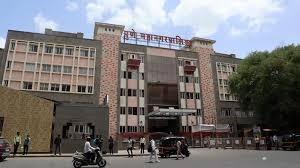Pune: The Pune Municipal Corporation (PMC) is finally moving ahead with the implementation of the long-stalled e-Office system, a digital governance tool intended to replace outdated paper-based workflows. Despite being introduced nearly a year and a half ago at an expenditure of ₹50 lakh, the project remained dormant due to bureaucratic delays and a general lack of enthusiasm among officials.
Originally developed by the National Informatics Centre (NIC), the e-Office platform has been in successful use at the Maharashtra state secretariat, or Mantralaya. The system aims to digitize file management, allowing documents to be processed, stored, and transferred electronically—streamlining operations and minimizing paperwork.
Until recently, PMC staff had only participated in training programs for the system, while full-scale implementation continued to be postponed. However, a recent directive from Chief Minister Devendra Fadnavis, issued under his “100 Days Reform Programme,” has accelerated the process. As per the directive, departments must now operate exclusively through e-Office, prompting swift action among municipal officials.
Currently, only 30 out of approximately 450 PMC departments and sub-divisions have adopted the digital system. Authorities now intend to roll it out across all major civic departments in the near future.
Historically, PMC’s file handling relied heavily on physical documents passed manually from one department to another. While files carried inwards-outwards numbers, tracking was inefficient, and cases of files being misplaced, tampered with, or deliberately lost were not uncommon. This outdated method often led to administrative delays and increased the risk of malpractice.
The e-Office platform aims to eliminate these challenges by allowing files to be created, commented on, signed, and transferred digitally. Officials will use e-signatures, and each transaction will be logged to maintain transparency and accountability.
One of the most significant benefits of the digital transition is the drastic reduction in physical paperwork. Government officials highlight the example of the devastating Mantralaya fire, which destroyed crucial documents, as a major reason for the shift toward digitalization. With digital storage, the risks of damage due to fire, mishandling, or natural disasters are considerably minimized.
Moreover, the reduction in paper usage aligns with broader sustainability goals, contributing to lower operational costs, less deforestation, and a smaller carbon footprint for the PMC.
Although initial reactions from many officers were indifferent, the new mandate has triggered a noticeable change in attitude. Many department heads are now attending refresher training and actively pushing their teams to adapt to the new system.
Apart from enhancing transparency and operational efficiency, the e-Office system is expected to simplify audits and improve accountability by offering traceable records of file movement and decision-making.
The PMC’s transition to digital governance is being viewed as a crucial step toward modern, efficient, and sustainable administration in one of Maharashtra’s fastest-growing urban centers.

















